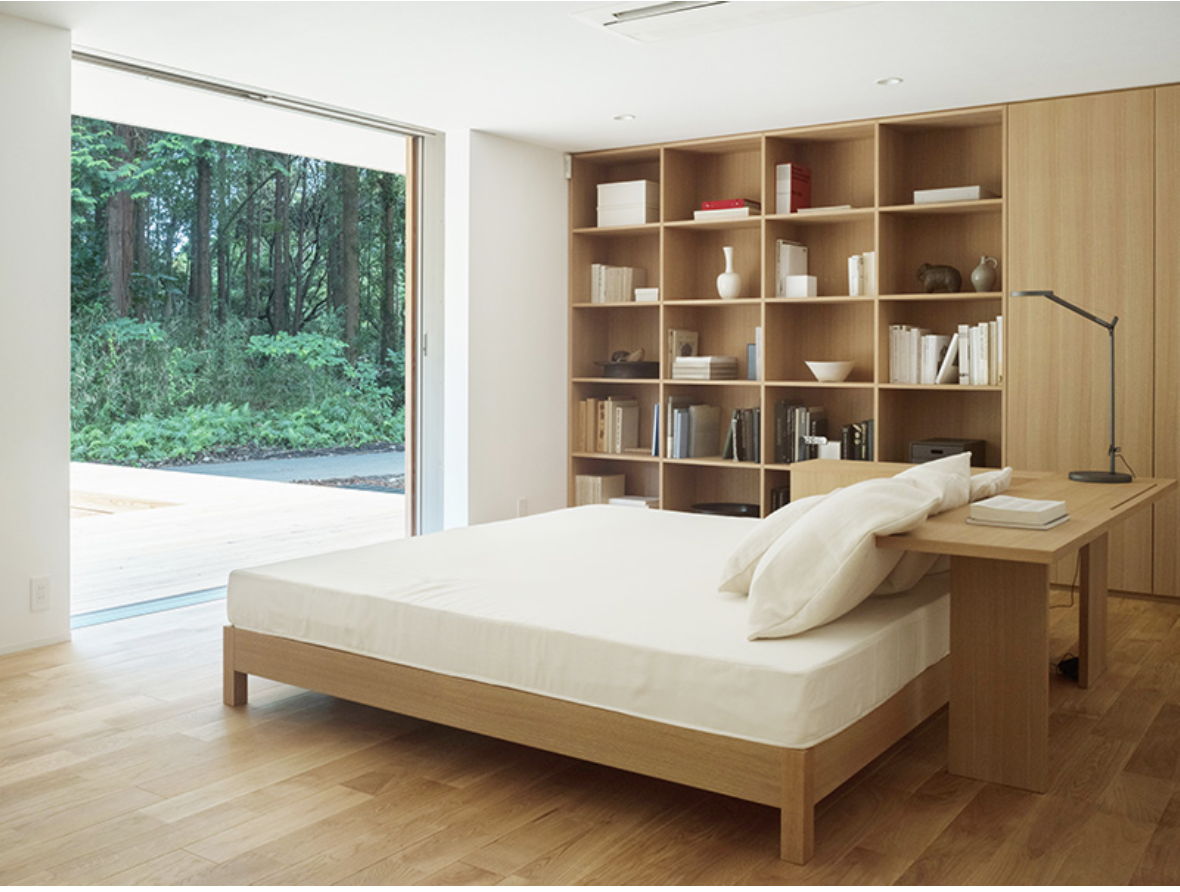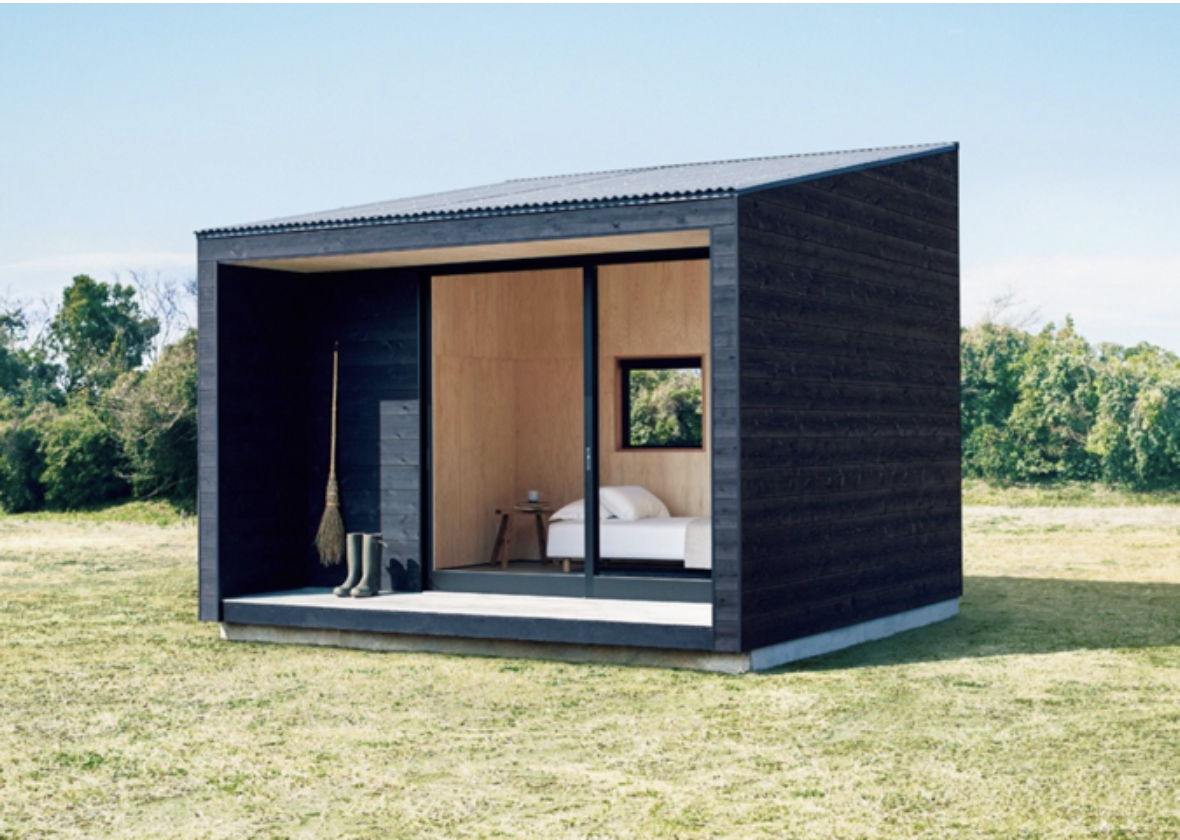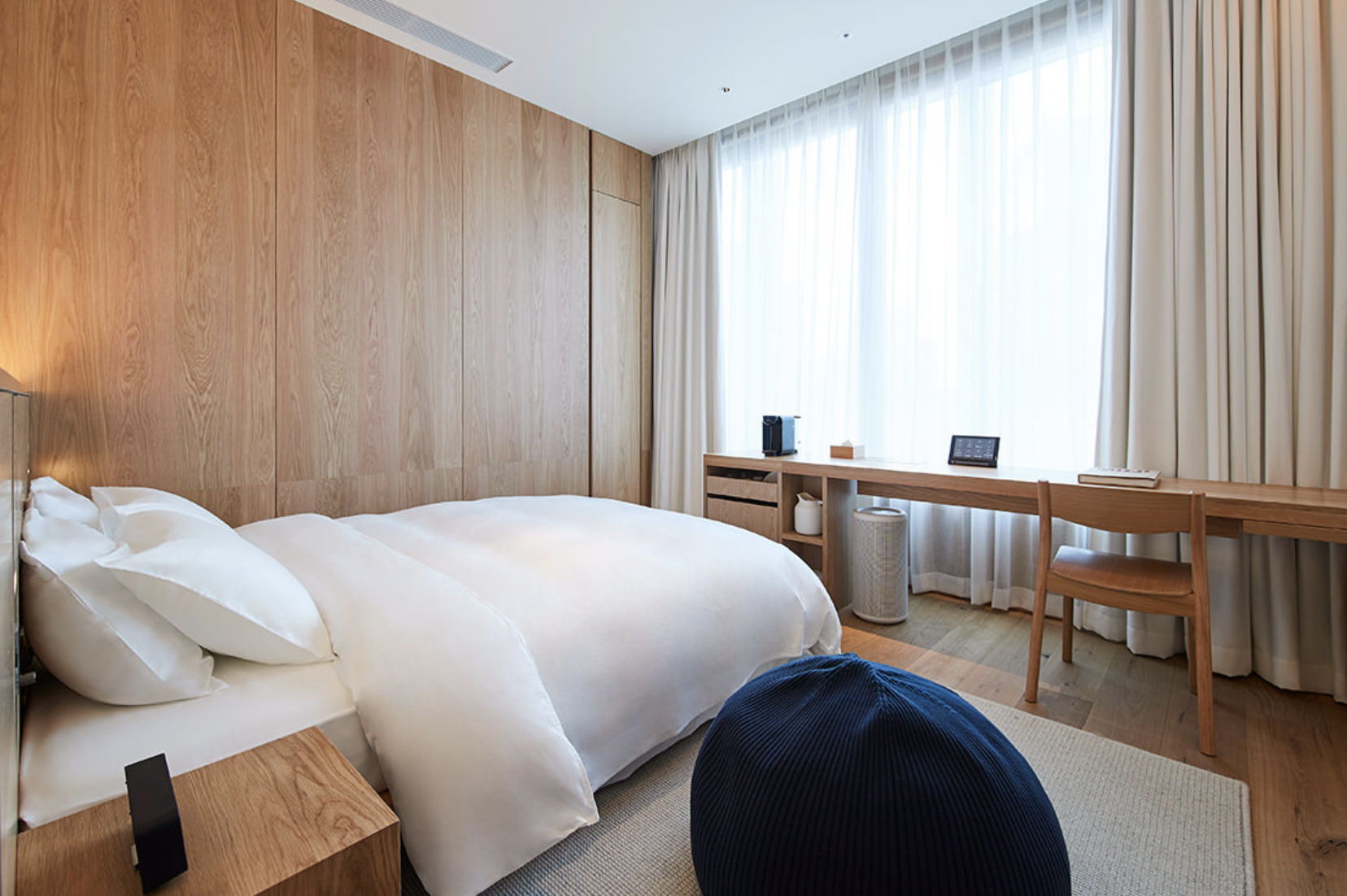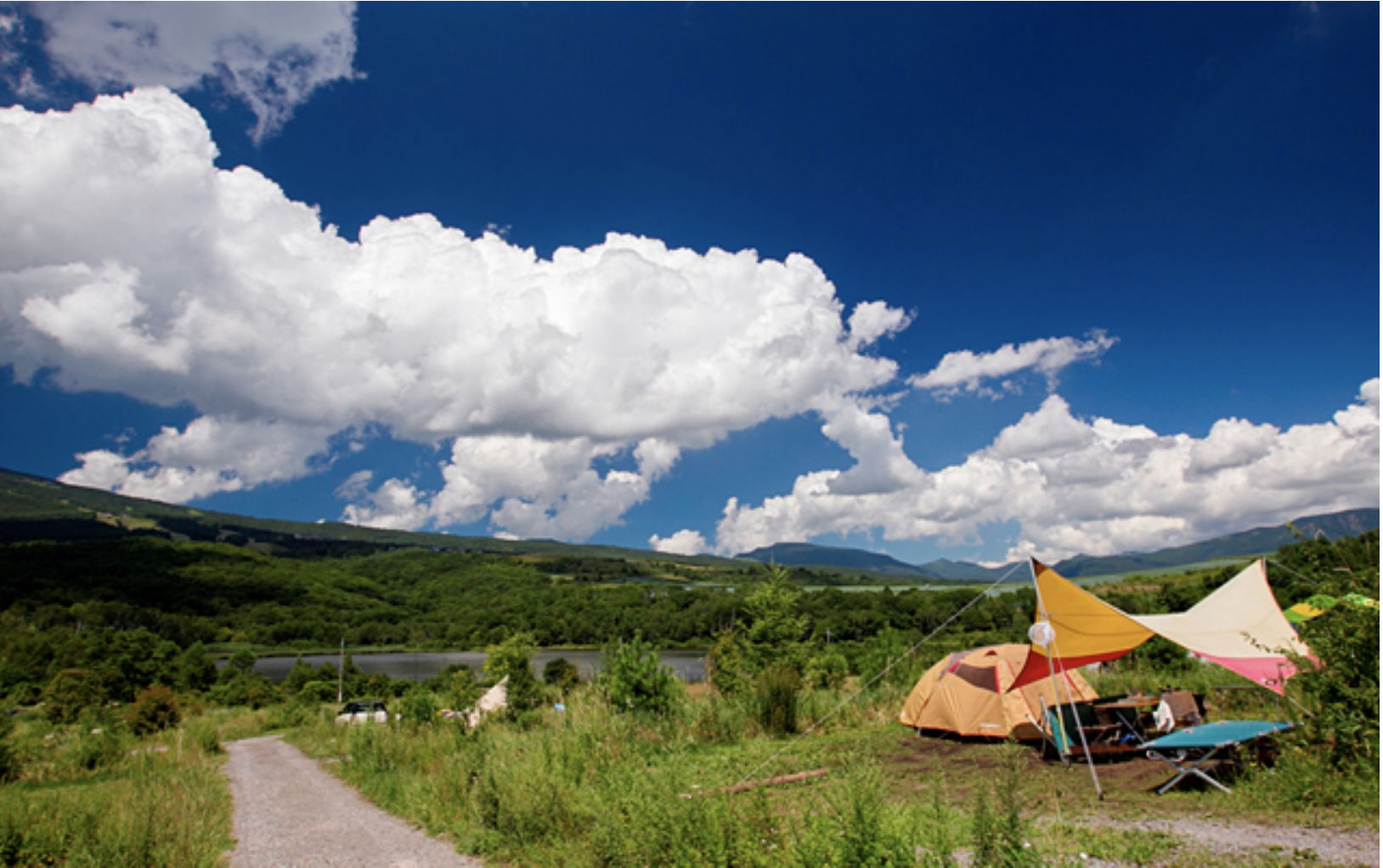Fact Sheet: Innovation
MUJI is a brand deeply committed to providing and creating products perfectly suited to exact needs, and this drive often spurs on innovation. More than a consumer retail brand, MUJI promotes a lifestyle: a commitment to minimal waste, intentional living, and a community-oriented purpose.
Below are some areas spanning beyond their product offerings in which MUJI has demonstrated their innovations in the market, creating a full lifestyle offering across categories.

MUJI House
Beginning in 2004, MUJI has created a variety of home experiences, offering a full home for purchase through MUJI, completely populated by MUJI goods. Designed and built by Ryohin Keikaku’s subsidiary, MUJI HOUSE Co., LTD, the first fully-established home was in 2004, Ki no Ie (The Wood/Tree House), followed by the Mado no Ie (Window House) in 2007, Tate no Ie (Vertical House) in 2014 and continued with the widely-celebrated Yo no le (Plain House) that launched in 2019.

MUJI Hut
The MUJI Hut was introduced in 2017, and is a modern prefab micro-home, available in Japan. Confined to a small 100 square-foot space, each MUJI Hut is intended emulate the MUJI experience of living simply. The interior and exterior are designed to bring in plenty of natural light and air circulation, with materials such as concreate, wood- charred cedar, and untreated cypress plywood, that provide design flexibility, durability and easy-to- clean surfaces.

MUJI Hotels
MUJI launched its hotel concept in 2018 with the opening of two hotels in China (in Beijing and Shenzhen), designed by MUJI and creating full, immersive experiences of the MUJI brand. In 2019, MUJI opened its first hotel in Japan -- the MUJI HOTEL GINZA -- located in the center of the Ginza district, Tokyo. In addition to featuring MUJI products throughout, the design of the MUJI HOTEL GINZA also reflects MUJI’s interest in materiality and sustainability. With a focus on wood, stone and earth, as well as recycled and repurposed materials including paving stones from trolley ways that ran through Tokyo 100 years ago and ship debris.
As Ryōhin Keikaku Chairman Masaaki Kanai describes: “our idea of ‘how hotels can be’, links again to the ‘purpose’ of MUJI as a brand...we know that we prefer to stay at hotels that are inexpensive, clean and ‘just right’. Through our realization of creating ‘just right’ hotels, we believe that we can convey to the world what MUJI is trying to do.” MUJI does not manage, develop or operate the hotels.

MUJI Campgrounds
Beginning in 1995, MUJI operates campsites across Japan, managing over 230 hectares of forest. The locations of the three campgrounds MUJI currently operates are Niigata, Gifu and Gunma. All three are situated in the highlands, and offer hiking, kayaking, and fishing. MUJI not only provides boats, tents, and fishing rods, but also offers outdoor recreation classes from bird calling to fly-fishing.

MUJI GACHA
Launched in March 2019, MUJI GACHA takes autonomous shuttles to a whole new level. Powered by Sensible 4’s self-driving software and wrapped in MUJI’s design, which is made in consideration of the users, GACHA can be fully integrated in existing public transportation systems, taking the city’s people to work, school, hobbies and wherever within the bus’ predefined zone of operations. An early pilot program for the shuttle launched in Finland in 2019.
Because of the shuttle’s condition-defying intelligence and performance, GACHA smoothly navigates in heavy traffic and complicated urban surroundings, offering smart, safe and sustainable on-demand transportation all year around.
Sensible 4 has produced a development fleet for public open road pilots that have been carried out in various locations in Finland in 2020-2021. The series production of the bus is planned to be set up in the future, and GACHA’s first permanent commercial operations have been planned to be established with integration to public transportation systems. A video outlining the concept is linked here.